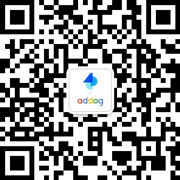
本案例默认翻译为中文,点击可切换回原语言
已切换成原语言,点击可翻译成中文
盲目采访
案例简介:背景 盲人成人康复中心 (c.r.a.C.) 为视障人士提供了继续生活和恢复工作所需的工具。但是为他们找到工作机会并不容易。通过这种激活,我们不仅展示了我们在中心所做的事情,而且还为许多公司打开了新的大门,这些公司与视障人士一起了解歧视也会影响他们。理解任何人都可以做出贡献,即使是视障人士,仅靠沟通是无法实现的。我们需要事实。我们需要不同的公司亲自体验。 描述您所在地区的文化/社会/政治/环境气候以及在此背景下您的竞选活动的重要性 找工作不仅对残疾人来说很难。39% 哥伦比亚人觉得他们因为外貌而被拒绝工作。 人们普遍认为视力障碍者无法正常生活。事实是,如果他们有适当的康复,他们可以像其他人一样过上生活,比如C.R.a.C.提供的康复。 我们需要提高意识,但除了开展一场运动来展示这家医疗机构提供的工具之外,我们还希望社会通过展示每个人的无意识偏见来反思。邀请我们来反映视障人士如何做几乎任何工作,也反映我们其他人在真正了解他们之前如何判断他们。 描述创意 (投票30%) 我们想证明视力障碍者可以找到工作,但我们也想消除影响人员选拔过程的偏见,而不仅仅是视障人士遭受的偏见。 我们的大脑只需要7秒钟就可以根据某人的外表产生偏见。但是由于盲人看不到别人的长相,他们不会立即产生偏见,将残疾转化为一大优势。 我们训练他们,把他们变成猎头。他们通过面试而不是因为他们的外表来选择新人才,从而帮助公司拥有更公平的招聘流程。 与他们合作的每家公司都改变了他们对视障人士的看法,为他们打开了新的大门。 描述策略 (投票20%) C.R.A.C有两个目标。第一个是创造意识,让盲人知道去哪里学习他们成功重返社会所需的所有工具。第二是通过帮助他们在不同的公司找到工作机会来帮助他们重新融入劳动力队伍。 但是我们没有足够的预算进行两次竞选。此外,时间和经验向他们表明,仅靠经典的沟通就无法实现这些目标。 该策略是采取行动,直接向不同公司的人力资源人员展示视障人士可以做的一切。 与一家招聘公司交谈时,我们发现他们在试图避免偏见以进行客观的选择过程中遇到了问题。 因此,我们决定与盲人作为招聘人员进行面试,向人力资源人员展示他们如何为自己的过程做出贡献。 描述执行 (投票20%) 在哥伦比亚一家重要的猎头公司Grupo contacco的帮助下,我们在招聘过程中培训了一群视障人士。 同时,我们进行了一次公关活动,媒体提出了残疾人如何成为该国失去的劳动力的问题。 然后,我们开始与Grupo contacco的客户进行测试,进行每次面试,激活我们对人力资源人员产生直接影响,显示视觉受限人员的能力。 我们记录了第一次盲目采访,并将其发布到我们的社交媒体上。这种材料使我们能够进入新公司,这种行动成为永久性的,并开始呈指数级增长。 描述结果/影响 (投票30%) 盲目采访正在打开大门,并为视障人士 (如Juan Carlos Quintero和lorenapechen é) 提供了机会,他们是在c.r.a.c.康复的用户,他们已经与Grupo contacco永久合作。 Grupo contacco推进了一系列甄选流程,许多客户整合了来自c.r.a.c的人员。有3家公司已经永久采用了这些流程来选拔人员。 从这一倡议开始,对话开始于不同的媒体,如El Tiempo、Caracol TV、santaf é Radio、am é rica Retail等,超过70.000美元的自由媒体,谈论视力障碍者,开启关于这一主题的对话,并为c.r.a.c的所有成员打开新的大门和机会。感谢他们在我国开展的巨大工作和使命。 对于营销预算微弱的客户.A.C. 这一行动给了他们前所未有的意识。
盲目采访
案例简介:Background The Rehabilitation Center for Blind Adults (C.R.A.C.) gives visually impaired people the tools they need to get on with their lives and get back to work. But finding job opportunities for them is not easy. With this activation, we not only demonstrate what we do in the Center, but we also open new doors in many companies that, along with the visually impaired, understand that discrimination also affects them. Understanding that anyone can contribute, even the visually impaired, is something that wouldn’t have been achieved with communication alone. We needed facts. We needed different companies to experience it for themselves. Describe the cultural/social/political/environmental climate in your region and the significance of your campaign within this context Finding a job is not only difficult for people with disabilities. 39% of Colombians feel they’ve been rejected for a job position because of their physical appearance. There is an common perception that people with visual disabilities can't have a normal life. The truth is they can have a life like anybody else’s if they have a proper rehabilitation, such as the one offered by the C.R.A.C. We needed to generate awareness, but beyond making a campaign to show the tools offered by this Healthcare Institution, we wanted society to reflect by showing the unconscious biases that everybody has. An invitation to reflect about how the visually impaired can do almost any job, but also about how the rest of us judge people before we really get to know them. Describe the creative idea (30% of vote) We wanted to show that people with visual disabilities can have a job, but we also wanted to eliminate biases that affect personnel selection processes, not only those suffered by the visually impaired. Our brain takes only 7 seconds to create a prejudice based on someone’s appearance. But since blind people can’t see how others look like, they don’t create an immediate prejudice, transforming their disability into a big advantage. We trained them and turned them into headhunters. They help companies have fairer recruitment processes by selecting new talent through interviews and not because of their appearance. Every company they’ve worked with have changed the perception they had of the visually impaired, opening new doors for them. Describe the strategy (20% of vote) The C.R.A.C has two objectives. The first one is to create awareness so that blind people know where to go to learn all the tools they need to have a successful reintegration into society. And the second is to help them reintegrate into the workforce by helping them find job opportunities in different companies. But we didn't have enough budget for two campaigns. And in addition, time and experience has shown them that they can't achieve those goals with only classic communication. The strategy was to have actions that directly demonstrate to people of human resources of different companies, everything that the visually impaired can do. Speaking with a recruitment company, we discovered they had problems trying to avoid bias to have an objective selection process. Therefore, we decided to create interviews with the blind as recruiters to show Human Resources people how they can contribute to their process. Describe the execution (20% of vote) With the help of Grupo ConTacto, an important headhunters company in Colombia, we trained a group of visually impaired in recruitment processes. At the same time we made a PR campaign where the media raised the issue of how people with disabilities are a lost workforce in the country. Then we started to make tests with Grupo ConTacto’s clients, making of each interview, an activation where we made a direct impact on HR people, showing the capabilities of the visually limited ones. We documented the first Blind Interviews and put them on our social media. This material allowed us to enter new companies, this action became permanent and began to grow exponentially. Describe the results/impact (30% of vote) Blind Interviews is opening doors and giving opportunities to visually impaired people like Juan Carlos Quintero and Lorena Pechené, users rehabilitated in the C.R.A.C., who are already working permanently with Grupo ConTacto. Grupo ConTacto has advanced a series of selection processes with many clients integrating people from the C.R.A.C. and 3 companies already have these processes on a permanent basis for the selection of personnel. From this initiative, conversation began in different media such as El Tiempo, Caracol TV, Radio Santafé, América Retail, and others, exceeding 70.000 dollars in free press, talking about people with visual disabilities, opening the conversation on this subject and opening new doors and opportunities for all the members of the C.R.A.C. thanks to the gigantic work and mission that they carry out in our country. For a client with a tinny marketing budget as the C.R.A.C. this action has given them a never seen awareness.
Blind Interviews
案例简介:背景 盲人成人康复中心 (c.r.a.C.) 为视障人士提供了继续生活和恢复工作所需的工具。但是为他们找到工作机会并不容易。通过这种激活,我们不仅展示了我们在中心所做的事情,而且还为许多公司打开了新的大门,这些公司与视障人士一起了解歧视也会影响他们。理解任何人都可以做出贡献,即使是视障人士,仅靠沟通是无法实现的。我们需要事实。我们需要不同的公司亲自体验。 描述您所在地区的文化/社会/政治/环境气候以及在此背景下您的竞选活动的重要性 找工作不仅对残疾人来说很难。39% 哥伦比亚人觉得他们因为外貌而被拒绝工作。 人们普遍认为视力障碍者无法正常生活。事实是,如果他们有适当的康复,他们可以像其他人一样过上生活,比如C.R.a.C.提供的康复。 我们需要提高意识,但除了开展一场运动来展示这家医疗机构提供的工具之外,我们还希望社会通过展示每个人的无意识偏见来反思。邀请我们来反映视障人士如何做几乎任何工作,也反映我们其他人在真正了解他们之前如何判断他们。 描述创意 (投票30%) 我们想证明视力障碍者可以找到工作,但我们也想消除影响人员选拔过程的偏见,而不仅仅是视障人士遭受的偏见。 我们的大脑只需要7秒钟就可以根据某人的外表产生偏见。但是由于盲人看不到别人的长相,他们不会立即产生偏见,将残疾转化为一大优势。 我们训练他们,把他们变成猎头。他们通过面试而不是因为他们的外表来选择新人才,从而帮助公司拥有更公平的招聘流程。 与他们合作的每家公司都改变了他们对视障人士的看法,为他们打开了新的大门。 描述策略 (投票20%) C.R.A.C有两个目标。第一个是创造意识,让盲人知道去哪里学习他们成功重返社会所需的所有工具。第二是通过帮助他们在不同的公司找到工作机会来帮助他们重新融入劳动力队伍。 但是我们没有足够的预算进行两次竞选。此外,时间和经验向他们表明,仅靠经典的沟通就无法实现这些目标。 该策略是采取行动,直接向不同公司的人力资源人员展示视障人士可以做的一切。 与一家招聘公司交谈时,我们发现他们在试图避免偏见以进行客观的选择过程中遇到了问题。 因此,我们决定与盲人作为招聘人员进行面试,向人力资源人员展示他们如何为自己的过程做出贡献。 描述执行 (投票20%) 在哥伦比亚一家重要的猎头公司Grupo contacco的帮助下,我们在招聘过程中培训了一群视障人士。 同时,我们进行了一次公关活动,媒体提出了残疾人如何成为该国失去的劳动力的问题。 然后,我们开始与Grupo contacco的客户进行测试,进行每次面试,激活我们对人力资源人员产生直接影响,显示视觉受限人员的能力。 我们记录了第一次盲目采访,并将其发布到我们的社交媒体上。这种材料使我们能够进入新公司,这种行动成为永久性的,并开始呈指数级增长。 描述结果/影响 (投票30%) 盲目采访正在打开大门,并为视障人士 (如Juan Carlos Quintero和lorenapechen é) 提供了机会,他们是在c.r.a.c.康复的用户,他们已经与Grupo contacco永久合作。 Grupo contacco推进了一系列甄选流程,许多客户整合了来自c.r.a.c的人员。有3家公司已经永久采用了这些流程来选拔人员。 从这一倡议开始,对话开始于不同的媒体,如El Tiempo、Caracol TV、santaf é Radio、am é rica Retail等,超过70.000美元的自由媒体,谈论视力障碍者,开启关于这一主题的对话,并为c.r.a.c的所有成员打开新的大门和机会。感谢他们在我国开展的巨大工作和使命。 对于营销预算微弱的客户.A.C. 这一行动给了他们前所未有的意识。
Blind Interviews
案例简介:Background The Rehabilitation Center for Blind Adults (C.R.A.C.) gives visually impaired people the tools they need to get on with their lives and get back to work. But finding job opportunities for them is not easy. With this activation, we not only demonstrate what we do in the Center, but we also open new doors in many companies that, along with the visually impaired, understand that discrimination also affects them. Understanding that anyone can contribute, even the visually impaired, is something that wouldn’t have been achieved with communication alone. We needed facts. We needed different companies to experience it for themselves. Describe the cultural/social/political/environmental climate in your region and the significance of your campaign within this context Finding a job is not only difficult for people with disabilities. 39% of Colombians feel they’ve been rejected for a job position because of their physical appearance. There is an common perception that people with visual disabilities can't have a normal life. The truth is they can have a life like anybody else’s if they have a proper rehabilitation, such as the one offered by the C.R.A.C. We needed to generate awareness, but beyond making a campaign to show the tools offered by this Healthcare Institution, we wanted society to reflect by showing the unconscious biases that everybody has. An invitation to reflect about how the visually impaired can do almost any job, but also about how the rest of us judge people before we really get to know them. Describe the creative idea (30% of vote) We wanted to show that people with visual disabilities can have a job, but we also wanted to eliminate biases that affect personnel selection processes, not only those suffered by the visually impaired. Our brain takes only 7 seconds to create a prejudice based on someone’s appearance. But since blind people can’t see how others look like, they don’t create an immediate prejudice, transforming their disability into a big advantage. We trained them and turned them into headhunters. They help companies have fairer recruitment processes by selecting new talent through interviews and not because of their appearance. Every company they’ve worked with have changed the perception they had of the visually impaired, opening new doors for them. Describe the strategy (20% of vote) The C.R.A.C has two objectives. The first one is to create awareness so that blind people know where to go to learn all the tools they need to have a successful reintegration into society. And the second is to help them reintegrate into the workforce by helping them find job opportunities in different companies. But we didn't have enough budget for two campaigns. And in addition, time and experience has shown them that they can't achieve those goals with only classic communication. The strategy was to have actions that directly demonstrate to people of human resources of different companies, everything that the visually impaired can do. Speaking with a recruitment company, we discovered they had problems trying to avoid bias to have an objective selection process. Therefore, we decided to create interviews with the blind as recruiters to show Human Resources people how they can contribute to their process. Describe the execution (20% of vote) With the help of Grupo ConTacto, an important headhunters company in Colombia, we trained a group of visually impaired in recruitment processes. At the same time we made a PR campaign where the media raised the issue of how people with disabilities are a lost workforce in the country. Then we started to make tests with Grupo ConTacto’s clients, making of each interview, an activation where we made a direct impact on HR people, showing the capabilities of the visually limited ones. We documented the first Blind Interviews and put them on our social media. This material allowed us to enter new companies, this action became permanent and began to grow exponentially. Describe the results/impact (30% of vote) Blind Interviews is opening doors and giving opportunities to visually impaired people like Juan Carlos Quintero and Lorena Pechené, users rehabilitated in the C.R.A.C., who are already working permanently with Grupo ConTacto. Grupo ConTacto has advanced a series of selection processes with many clients integrating people from the C.R.A.C. and 3 companies already have these processes on a permanent basis for the selection of personnel. From this initiative, conversation began in different media such as El Tiempo, Caracol TV, Radio Santafé, América Retail, and others, exceeding 70.000 dollars in free press, talking about people with visual disabilities, opening the conversation on this subject and opening new doors and opportunities for all the members of the C.R.A.C. thanks to the gigantic work and mission that they carry out in our country. For a client with a tinny marketing budget as the C.R.A.C. this action has given them a never seen awareness.
盲目采访
暂无简介
Blind Interviews
暂无简介
基本信息
暂无评分
已有{{caseInfo.tatolPeople}}人评分
创作者
案例详情
涵盖全球100万精选案例,涉及2800个行业,包含63000个品牌
热门节日97个,23个维度智能搜索
-

项目比稿
品类案例按时间展现,借鉴同品牌策略,比稿提案轻松中标
-

创意策划
任意搜索品牌关键词,脑洞创意策划1秒呈现
-

竞品调研
一键搜索竞品往年广告,一眼掌握对手市场定位
-

行业研究
热词查看洞悉爆点,抢占行业趋势红利
登录后查看全部案例信息
如果您是本案的创作者或参与者 可对信息进行完善







